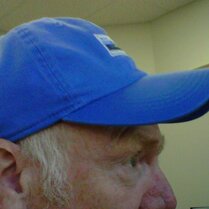 Mitchell Toews lives and writes lakeside in Manitoba. When an insufficient number of, "We are pleased to inform you..." emails are on hand, he finds alternative joy in the windy intermingling between water and sky or skates on the ice until he can no longer see the cabin. Mitch's writing has appeared in numerous literary magazines online and in print, including anthologies and collections. Some of these, from the UK and Ireland, Canada, and the USA, are riverbabble, CommuterLit, Best of Fiction on the Web, Literally Stories, Storgy, LingoBites, The MOON magazine, Fictive Dream, Blank Spaces, Just Words, Cabinet of Heed, Pulp Literature, Doorknobs & Bodypaint, and River Poets Journal. Details at Mitchellaneous.com. The author of, "The Narrowing", is currently beginning work on a screenplay of his novella, "The Bottom of the Sky", and is hard at it with a novel set in the noireal forest. The Narrowing |
Categories
All
|
 RSS Feed
RSS Feed